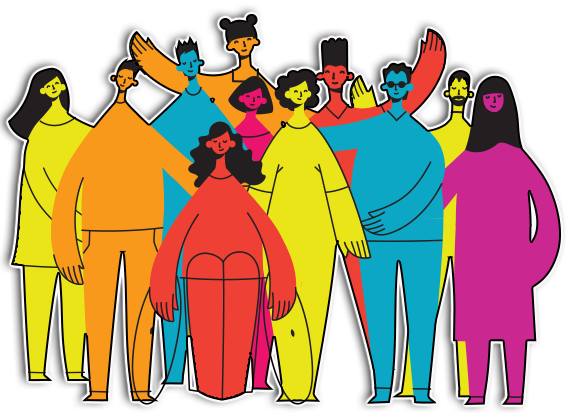Anti-social behaviour covers many activities, some of which are criminal offences
It can range from a mild annoyance to something that causes real fear and insecurity.
ASB has a real impact on people’s lives. It is very subjective and what one person considers to be ASB another person may not.
What is ASB?
Anti-social behaviour is any behaviour that causes harassment, alarm or distress to any person not of the same household. Sometimes we call it ASB.
In short, ASB is anything that has a negative impact on the community. It disrupts the peace and quiet of the people that live around you.
We split ASB into three main categories:
- Personal ASB targets an individual or a group
- Nuisance ASB impacts the local community in general
- Environmental ASB affects the surroundings
Types of ASB
ASB will usually fall into one of these types:
- Abandoned vehicles that appear to have been left by their owner, rather than stolen.
- Inappropriate use of vehicles. This includes motorised skateboards and electric-propelled bicycles.
- Rowdy or inconsiderate behaviour in a public place. This does not include domestic-related behaviour, harassment, or public disorder. You should report these as crimes.
- Rowdy behaviour or nuisance caused by neighbours, including parking disputes and loud music.
- Littering, including flyposting and discarding litter, rubbish, or drugs paraphernalia in public places.
- Animals creating a nuisance or people’s behaviour associated with the use of animals.
- Trespassing where people have entered premises without permission, including unauthorised campsites.
- Communication by phone that causes annoyance, including silent calls and ‘cold calling’.
- Drinking in public spaces where the behaviour of the persons involved is antisocial.
- Any activity involving prostitution such as loitering, displaying cards or promoting prostitution.
- All incidents of noise nuisance that do not involve neighbours.
- Anyone begging or asking for donations in a public place, or encouraging a child to do so, without a license.
- Inappropriate use of fireworks, including the unlawful sale or possession of fireworks.
Reporting ASB
You do not have to put up with anti-social behaviour. Your local council, social landlords and the police all have powers to deal with ASB.
If you report ASB, it may prevent it happening again. By taking an active role, you can help make a difference.
Not all types of anti-social behaviour are a police matter. Sometimes you may have to report things to your local council or social housing provider.
Police responsibility
- Begging
- Dealing or taking of drugs and drinking alcohol in the street
- Gangs and youths drinking in parks
- Harassment or intimidation
- Hoax calls to emergency services
- Misuse of fireworks
- Prostitution and indecent behaviour
- Vandalism or graffiti
Council responsibility
- Abandoned vehicles
- Dead animals
- Dog fouling
- Flyposting
- Littering
- Fly-tipping
- Waste on land
- Lost or stray dogs
- Noise nuisance
- Syringes or needles
Report ASB incidents to the social housing provider if you or the person committing ASB are a tenant.
